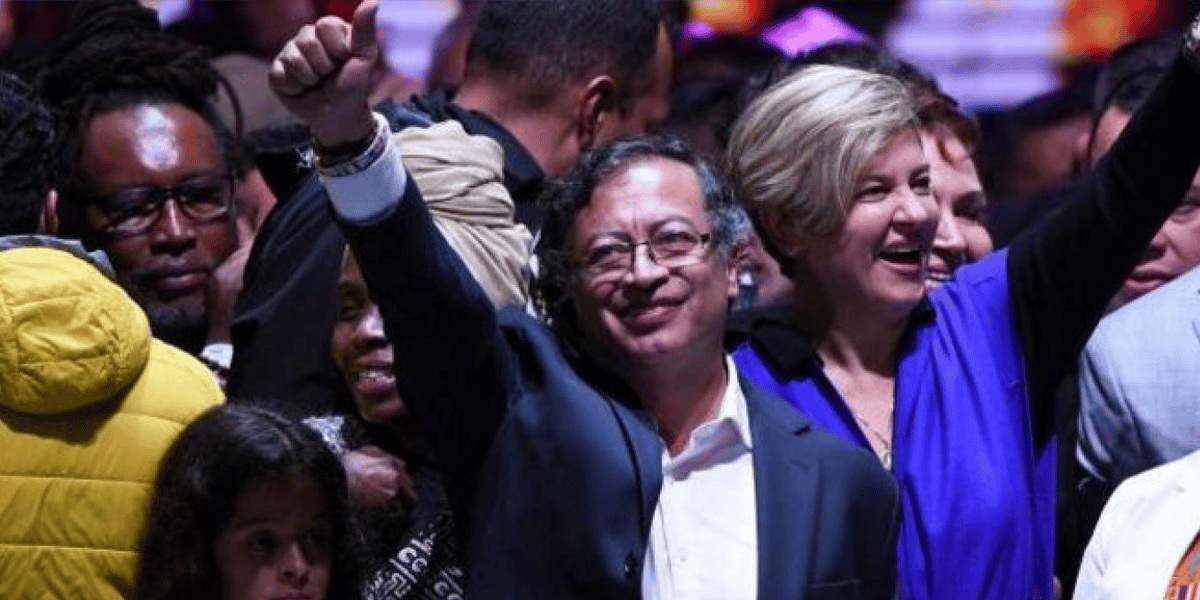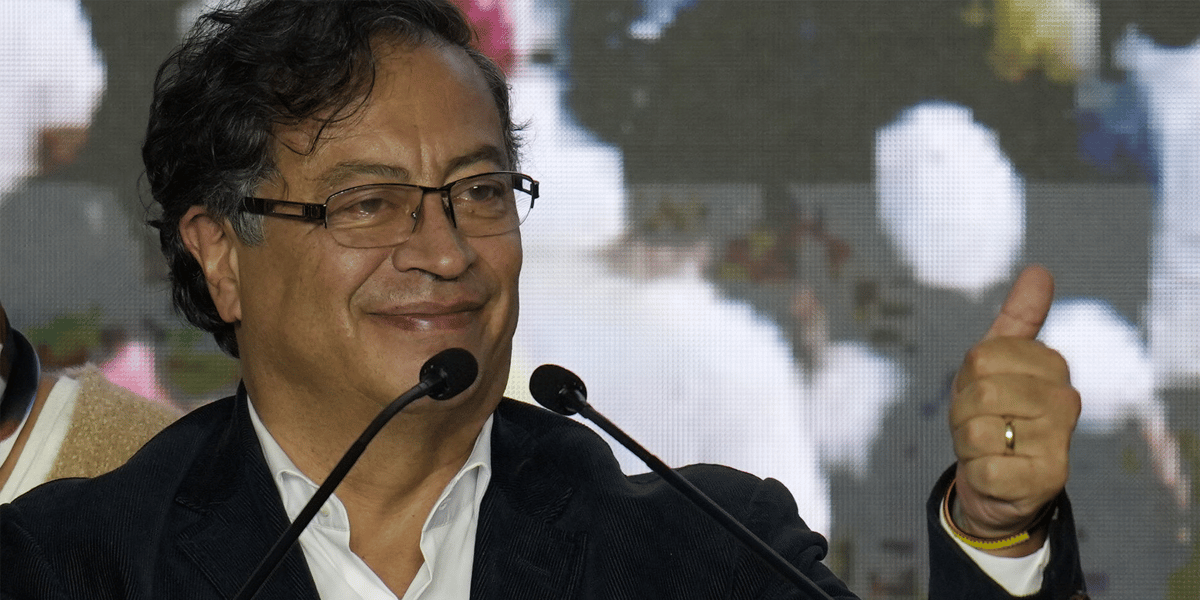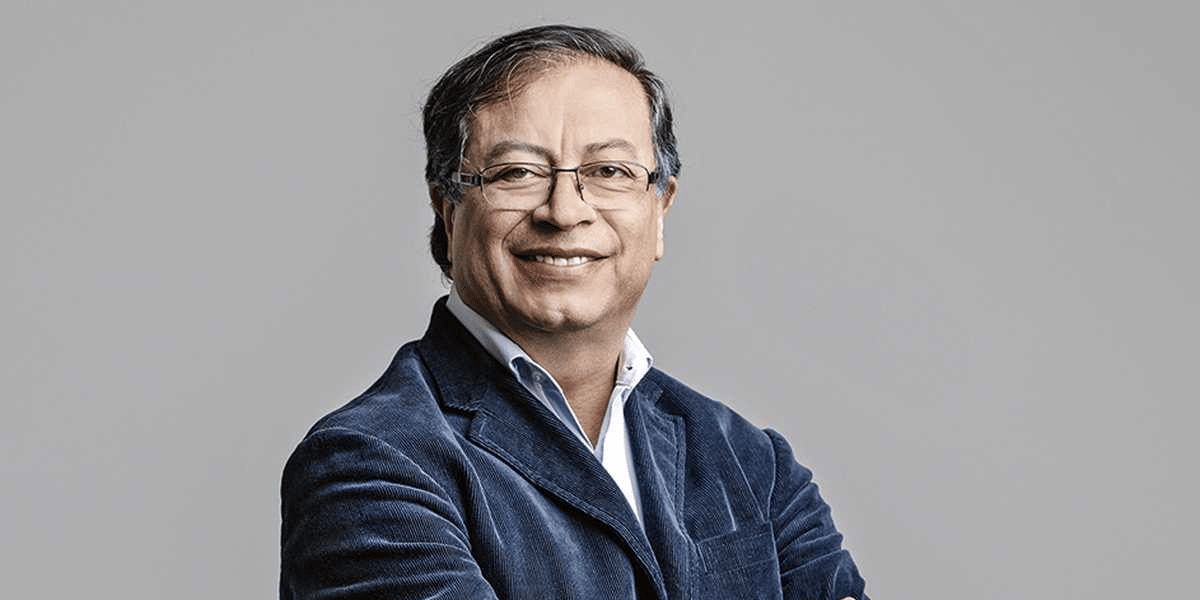Gustavo Petro, the first leftist president in Colombia
The candidate of the Historical Pact obtained the majority of the votes in the presidential second round.
Gustavo Petro Urrego was elected as Colombia’s new president for the 2022-2026 term on Sunday, with 50.4 percent of the vote in the presidential runoff. In a historic vote, with more than 11.2 million votes, he becomes the country’s first left-wing head of state.

Gustavo Petro was born on April 19, 1960, in Ciénaga de Oro, Córdoba. He is an economist from the Externado University. He has a specialization in public administration from ESAP, studies in economics at the Javeriana University, in environment and population development from the Catholic University of Leuven, and in new trends in business administration at the University of Salamanca.
After passing through the ranks of the guerrillas and the peace process in the government of Virgilio Barco, he was among the founders of the Democratic Alliance M-19, a movement that achieved great popular support and participated in the Constituent Assembly of 1991. With the support of this movement, he came to the House in 1991.
In 1994 he was appointed to the Colombian embassy in Belgium as diplomatic attaché for human rights until 1996. He returned to the country in 1998 and aspired again to the Chamber with the endorsement of the Alternative Way Movement, founded together with other former militants of the AD M-19 group.
In that period he was characterized by his denunciations of corruption and his debates of political control, especially on the armed conflict. Then, between 2006 and 2010, he was a senator of the Republic.
What he accomplished during his time in Congress led him to run for president for the first time in 2010. In those elections, he obtained 1,331,267 supports.

Petro has become the undisputed leader of the left in Colombia, which has not prevented such important leaders as Jorge Enrique Robledo and Antonio Navarro from distancing themselves from him in recent years.
He was elected mayor of Bogotá in 2011. During that time he was sanctioned with dismissal and incapacity by the Attorney General’s Office for a problem with the management and management of garbage, from which he was finally acquitted by decision of the Council of State.
In recent months, in addition, the Supreme Court, for its part, shelved the investigation against Petro for the scandal of the video in which he appeared receiving a bag with cash, because it determined that a possible violation of the law had already expired when the fact was revealed.
In 2018, he ran for the Presidency and obtained the second largest vote in the elections: 4.8 million in the first round and about 8 million in the second, when he was defeated by President Iván Duque.
Proposals
During his campaign and in debates, Gustavo Petro has defended several controversial proposals. In an eventual government of his, he assures, there would be a transition from an extractive economy of oil and coal to one based on agricultural productivity and the promotion of crops of 11 main products harvested in the country.
“The first decision I am going to make is the cessation of the contracting of oil exploration in Colombia. It is a clear message: we are moving towards a productive, non-extractivist economy,” he told EL TIEMPO in an interview.
To achieve this, the candidate has assured that it is necessary to promote a policy in which tariffs are removed from inputs that stimulate added value in Colombia.
In his government plan he proposes a structural tax reform with which there would be less taxes for small and medium-sized productive companies that work agriculture with clean energy.
Another of his proposals is related to education. Petro proposes to increase the budgets for this portfolio and for culture and sport. According to him, these three areas should work together.
As for security, Petro has assured that “crime should be looked at in a multidimensional way”, that is, according to him, he would implement policies that promote social inclusion.
During his campaign, one of the most controversial issues was the use, by the State, of part of the money saved by Colombians in private pension funds.

